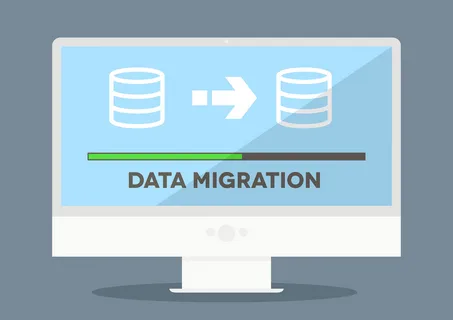Whether it be a busy workday or a lazy Sunday afternoon you will probably end up on the internet. The internet serves a multitude of purposes today, such as online shopping, streaming, and even business meetings. Spending so much time online might be practical but it is also dangerous. From hackers to companies that steal your personal information the internet isn’t as safe as some people think. That is why several services have attempted to make the internet a safer place. Proxies on the internet serve as bodyguards as you go through your virtual day – acting as the modern-day security guard.
Table of Contents
What is a Proxy Server?
A proxy server, also known as proxy, can be compared to a barrier that protects you through your Internet journey.
A proxy serves as the “middleman” between you and the website that you want to access. This middleman allows you to sit comfortably as they stand in between you and those with malicious intent online.
When you attempt to access a website, you end up using your IP address, in exchange for the content you want they end up with your virtual address. This IP simply allows the sites to verify someone is accessing the site and they should release the requested information.
Proxies can be a front and mask the personal information from the IP you are sending and still give you access to the website. Think of them as a primary shield that presents a different IP address to let you access a website risk-free.
Common Kinds of Proxies

Forward proxy
There are various forms of proxies each with its objectives and technique. The most common is the forward proxy, they are usually found when multiple users are on one internal network.
When a user attempts to connect to a website the proxy stands as their shield. From the point of view of the website, it is the proxy requesting access and not the user. With this, the user ends up being anonymous and safe.
Residential Proxy
A more complicated tool would be the residential proxy. They serve the same purpose but in this case, the proxy offers IP addresses to the website that are connected to a physical address.
The physical address mentioned is just like your home address except the one sent to the server is the residential proxy’s address. These let you access certain sites that have a higher security measure and are specifically catered for large collections of data.
They have two main types, static and rotating residential proxies. The difference is that the static proxy gives one IP address that protects you while a rotating proxy gives you a different IP address for every other request.
Both keep you safe, but the rotating proxy allows you to continuously gather data without being flagged.
Distorted Proxy
Lastly, a distorted proxy keeps you safe by offering a website a completely wrong IP address. As its name suggests it simply distorts information sent to the server.
There are various kinds of proxies each with a different function and procedure. You get to pick the proxy that fits your interest the best.
Why Should You Use a Proxy Server?

Now that we know the different possible security guards up for hire, let’s talk about why you should get one now.
Security and Anonymity
As mentioned repeatedly, proxies keep you safe as you continue your day. They stand in front of you and prevent servers from accessing information you don’t want them to. Hiding your personal information as well as offering their own in replacement. In the age of hackers; proxies are your best friends.
With proxies, you can stay safe and anonymous as you search and access whatever website you please.
2. Location Specified Content
Proxy servers also allow you to gain access to certain sites or content that might be blocked in your country. An example would be certain Netflix shows only being available in different parts of the globe. If you use a proxy server then as far as Netflix is concerned, you’re now in a different region.
3. Faster Loading Time
These servers can retain information. Previously accessed sites may load faster because the servers already have the details on hand. Thanks to proxies you no longer need to send another request to the server.
4. Blocking What You don’t Want
Tired of random ads showing up on your browser? Proxies don’t just stop them from showing up, but they can block ads and cookies entirely (even the ones from noted sites like Youtube).
Allowing you to only see what you want and nothing else.
Monitoring Your Internet
These proxies don’t just stop other people from watching you, they also let you do the monitoring yourself. Certain proxies take note of different requests (even those from websites that don’t usually inform you) and make sure you are aware that they tried to access this.
5. Unbiased Searching
Search Tailoring isn’t necessarily a bad thing, but it can affect future searches and end up bothering you with information you did not want to know. Search Tailoring is when sites take note of your previous searches and use that to decide what to send you next time.
Proxies help you to search for the information you want even though you have not searched for anything like it before.
In Conclusion
The internet is a wonderful place full of possibilities, but it is also full of traps. Living in fear that you might be tracked or spied on isn’t something you should have to deal with. Proxies offer quick and effective solutions that make sure you get to spend your day the way you want.
Proxy servers stand in front of you and shield you from the dark and malicious side of the internet. They allow you to access the parts of the internet you want without random ads. Additionally, all of your personal information is hidden and safe.
Different kinds of proxies also come from different servers and various businesses. You get to pick what you want and need. A handpicked proxy allows you to access the wonderful world of the internet the way you want.











